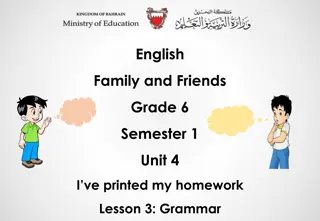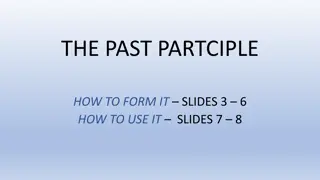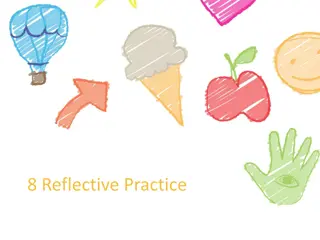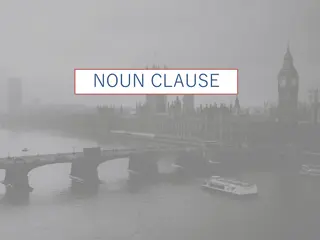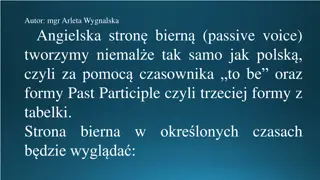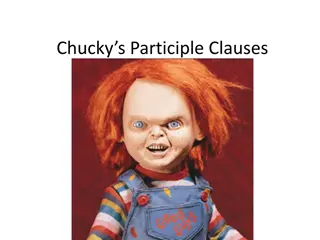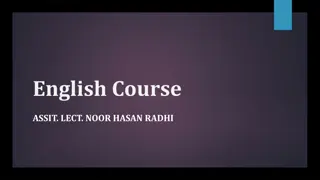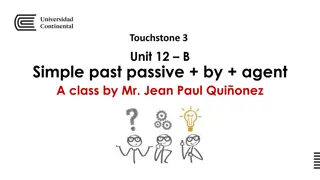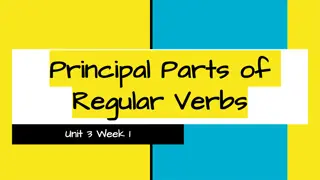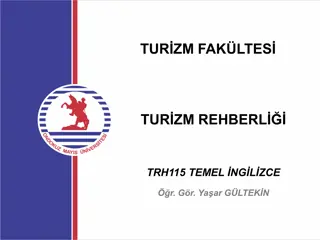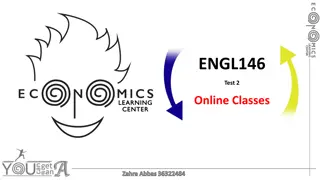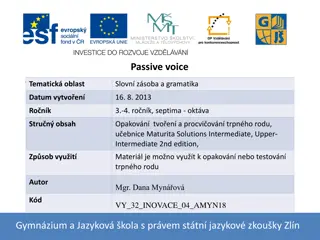PARTICIPLE PRACTICE
Explore participles in grammar, learn how they function as adjectives, form participial phrases, and modify sentences. Practice identifying participles, breaking down sentences, and marking up participial phrases. Discover how participial phrases modify nouns and enhance sentence structure.
Download Presentation

Please find below an Image/Link to download the presentation.
The content on the website is provided AS IS for your information and personal use only. It may not be sold, licensed, or shared on other websites without obtaining consent from the author.If you encounter any issues during the download, it is possible that the publisher has removed the file from their server.
You are allowed to download the files provided on this website for personal or commercial use, subject to the condition that they are used lawfully. All files are the property of their respective owners.
The content on the website is provided AS IS for your information and personal use only. It may not be sold, licensed, or shared on other websites without obtaining consent from the author.
E N D
Presentation Transcript
A PARTICIPLE IS A VERBAL. Verb Adjective A participle is a verb that acts like an adjective.
WHAT IS A PARTICIPLE? A participle is a type of verbal. Like all verbs: It can be present tense, ending in ing. It can be past tense, ending in -ed or its irregular form. Because it is a verbal, it does not function as a verb within a sentence; instead, it functions as an adjective. Like all adjectives: It can modify a noun, pronoun, or other adjective. It answers which one, what kind, or how many. Trampling, eating, sleeping Trampled, eaten, slept Verb: The little girl is trampled by Mr. Hyde. Participle: Trampled by Mr. Hyde, the little girl lies in the street.
PARTICIPIAL PHRASE = PARTICIPLE + ALL OF ITS ACCOMPANIMENTS Like a verb, a participle Like an adjective, a participle Can be modified by an adverb or a prepositional phrase Can have a direct object May have an indirect object Can be modified by an adverb Can be paired with another adjective or participial phrase Brutally trampled by Mr. Hyde and pitifully crying out in pain, the little girl lies in the street.
BREAK IT DOWN Identify the part of speech for each word. Adverb Noun Adverb Preposition Participle Conjunction Brutally trampled by Mr. Hyde and pitifully Adjective Participle Article Adverb Preposition Preposition Article Noun Verb Noun crying out in pain , the little girl lies in the Noun street.
MARK IT UP Underline each participial phrase. Put [brackets] around each participle. Brutally trampled by Mr. Hyde and pitifully crying out in pain, the little girl lies in the street.
WHAT DO THE PARTICIPIAL PHRASES MODIFY? Brutally [trampled] by Mr. Hyde and pitifully [crying] out in pain , the little girl lies in the street. Notice the punctuation: a participial phrase needs to be separated from the sentence s subject by a comma.
PRACTICE Sentence 1
UNSCRAMBLE THE SENTENCE a substantial amount agrees to pay fearing the crowd Mr. Hyde the little girl s family of money
BREAK IT DOWN Identify the part of speech for each word in the previous sentence. Fearing the crowd, Mr. Hyde agrees to pay the girl s family a substantial amount of money.
MARK IT UP Underline the participial phrase. Put [brackets] around the participle. Circle the noun or pronoun modified by the participle. Fearing the crowd, Mr. Hyde agrees to pay the girl s family a substantial amount of money.
IMITATE THE SENTENCE Using the previous sentence as a guide, create your own sentence. [Fearing] the crowd, Mr. Hyde agrees to pay the girl s family a substantial amount of money.
PRACTICE Sentence 2
UNSCRAMBLE THE SENTENCE with the horrible Mr. Hyde leaves Mr. Utterson Mr. Enfield s story Dr. Jekyll s involvement wondering about
BREAK IT DOWN Identify the part of speech for each word in the previous sentence. Mr. Enfield s story leaves Mr. Utterson wondering about Dr. Jekyll s involvement with the horrible Mr. Hyde.
MARK IT UP Underline the participial phrase. Put [brackets] around the participle. Circle the noun or pronoun it modifies. Mr. Enfield s story leaves Mr. Utterson wondering about Dr. Jekyll s involvement with the horrible Mr. Hyde.
IMITATE IT Using the previous sentence as a guide, create your own sentence. Mr. Enfield s story leaves Mr. Utterson [wondering] about Dr. Jekyll s involvement with the horrible Mr. Hyde.
PRACTICE Sentence 3
UNSCRAMBLE THE SENTENCE Challenge: This sentence contains 3 participial phrases. a check returning from the mysterious door and signed by Dr. Jekyll the girl s family bringing with him Mr. Hyde pays
BREAK IT DOWN Identify the part of speech for each word in the previous sentence. Returning from the mysterious door and bringing with him a check signed by Dr. Jekyll, Mr. Hyde pays the girl s family.
MARK IT UP Underline the participial phrases. Put [brackets] around each participle. Circle the noun or pronoun it modifies. Returning from the mysterious door and bringing with him a check signed by Dr. Jekyll, Mr. Hyde pays the girl s family.
IMITATE IT Using the previous sentence as a guide, create your own sentence. [Returning] from the mysterious door and [bringing] with him a check [signed] by Dr. Jekyll, Mr. Hyde pays the girl s family.





